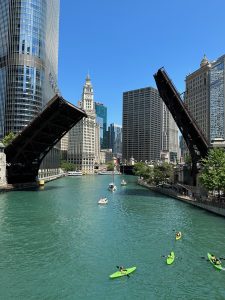 Plaintiff lost his malpractice claim against his lawyers because the court deemed his expert reports inadmissible. In the alternative, Plaintiff argued that his lawyers were negligent by failing to dispute the court’s finding that the operations of a company were illegal. The New Jersey Appellate Court rejected that argument on the basis that plaintiff invited the error.
Plaintiff lost his malpractice claim against his lawyers because the court deemed his expert reports inadmissible. In the alternative, Plaintiff argued that his lawyers were negligent by failing to dispute the court’s finding that the operations of a company were illegal. The New Jersey Appellate Court rejected that argument on the basis that plaintiff invited the error.
Finally, plaintiff contends that the Orloff court erred in concluding that UNO’s operation was illegal. He argues that “[t]he court below assumed UNO was illegal, as the trial court in Orloff offhandedly so concluded[.]” According to plaintiff, “the defendants failed to disabuse [the trial court in the Orloff litigation] of the notion that UNO was `illegal,’ and to advance the conclusions to the contrary of international compliance experts, Graves, Erb and McDonald.” We disagree.
First, the facts of this case fall squarely within the invited-error doctrine. “The doctrine of invited error operates to bar a disappointed litigant from arguing on appeal that an adverse decision below was the product of error, when that party urged the lower court to adopt the proposition now alleged to be error.” Brett v. Great Am. Recreation, 144 N.J. 479, 503 (1996). The doctrine “is intended to `prevent [a party] from manipulating the system’ and will apply `when a [party] in some way has led the court into error’ while pursuing a tactical advantage that does not work as planned.” State v. Williams, 219 N.J. 89, 100 (2014) (quoting State v. A.R., 213 N.J. 542, 561-62 (2013)). A party “cannot beseech and request the trial court to take a certain course of action, … then condemn the very procedure he sought and urged, claiming it to be error and prejudicial.” State v. Pontery, 19 N.J. 457, 471 (1955).
From the time plaintiff hired Orloff to represent him in 2006, and pursue his claims against FTV and Nexxar, plaintiff has consistently claimed that UNO’s business operations were illegal. Plaintiff’s fraud claims were based on the illegality of UNO’s business operations. Indeed, at his deposition in the Orloff litigation, plaintiff testified that UNO’s business operations were illegal. Therefore, plaintiff is precluded under the doctrine of invited error from arguing that the Orloff court erred by accepting his argument and the evidence he presented of UNO’s illegality.
In sum, the trial court correctly determined that plaintiff could not demonstrate actual damages in this case because, as in the Orloff litigation, his expert reports were inadmissible. Therefore, the court properly granted summary judgment to defendants and dismissed plaintiff’s complaint.
Angrisani v. Law Office of Leo B. Dubler, III, LLC, N.J. Appellate Court 2024.
 Chicago Legal Malpractice Lawyer Blog
Chicago Legal Malpractice Lawyer Blog

